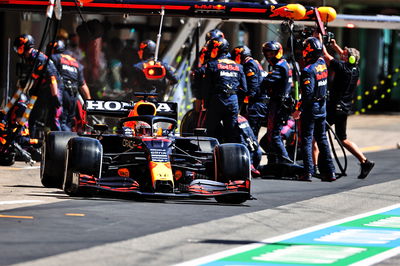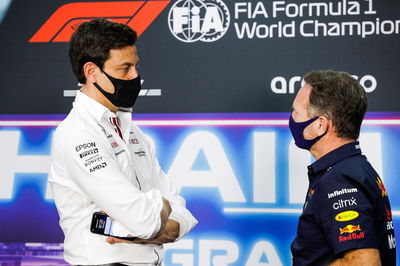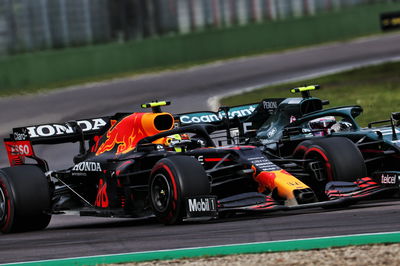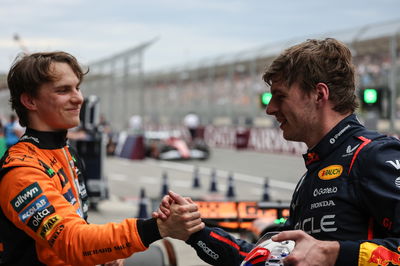F1 pitstop rule change “obviously” to slow Red Bull down - Horner

A new technical directive will force teams to slow down their pit stops over safety concerns from next month’s Hungarian Grand Prix, requiring a delay of 0.2s between the completion of the pit stop and the car being released.
Red Bull has won the DHL fastest pit stop award five times out of the opening seven races so far this season, with three of their pit stops clocking at under two seconds.
And Red Bull team principal Horner believes it is a deliberate attempt to negate his side’s advantage.
“The technical directive is certainly very wordy and you always have to question whether it’s a change of regulation,” Horner said on Friday at the Styrian Grand Prix.
“But I suppose we have been very competitive, we’ve got the world record on pit stops, we’ve had the majority of the fastest stops, and it’s not by accident.
“I find it a little disappointing because it’s the duty of the competitor to make sure that the car is safe. The penalty for a wheel not being fixed is that you have to stop the car immediately, so it’s a brutal punishment if you haven’t got all four wheels securely and safely fastened.
“So what the technical directive is trying to achieve, I’m not quite sure. I think there’s an awful lot of complexity to it.
“Of course when you are in a competitive situation, if you can’t be beaten, then the most obvious thing is for your competitors to try and slow you down. And that’s obviously what’s happening here.”

It is the latest in a line of technical directives introduced in F1 and follows a clarification relating to rear wing aeroelasticity that was imposed at the French Grand Prix last time out.
Red Bull has also faced accusations about pushing the boundaries with tyre pressures following Max Verstappen’s failure in Baku.
Asked whether he feels that Red Bull has a target on its back, Horner replied: “I think you can see there’s an awful lot of pointed activity in our direction at the moment, but that comes with the territory of being competitive.
“An awful lot of energy is going in to try and slow the car down, which is obviously what happens in a competitive business. It’s something that we are used to but not losing too much sleep about.”
Mercedes boss Toto Wolff stressed he was “not 100% sure” what had prompted the technical directive but revealed his side raised a query about pit stops around a month ago.
“We enquired with the FIA on a safety mechanism which is related to a system that we were using and whether that could be optimised,” he explained.
“That happened, I would say, three or four weeks ago and it was a technology question. Did that trigger anything else? Maybe, I don’t know, but this is the question we’ve asked.”












